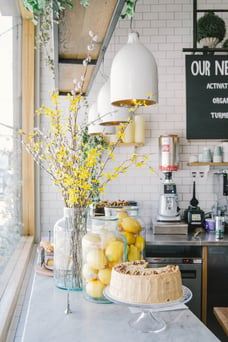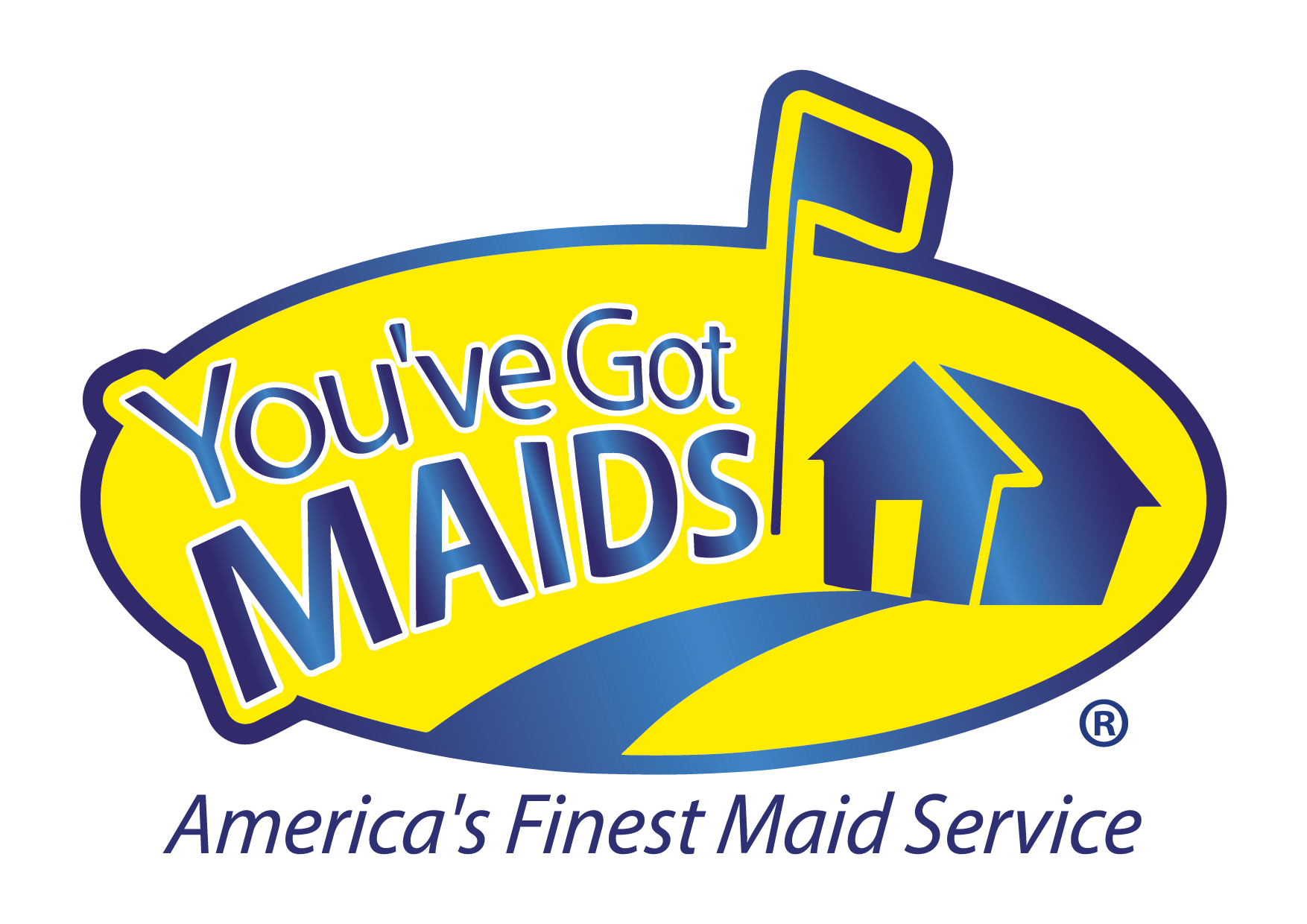How Can I Use Vinegar to Clean a Kitchen?

Vinegar is great alternative to harsh chemical based cleaning products. It's as natural as you can get, in fact, you've definitely consumed the components that are used to create white vinegar. Traditional white vinegar is comprised of only basic grains and water. It's fermented, distilled, and then sold to you to use as a cleaning product. Let's explore some possible uses for vinegar in your routine cleaning processes, as well as some methods to make the process smell as good during as it does after.
Can I make cleaning with vinegar enjoyable?
You don't have to suffer through those intense vinegar fumes during the process of cleaning. The fresh, clean smell that comes after the vinegar evaporates is better than any chemical you've ever experienced. But, let's look at how we can make the actual process more enjoyable.
DIY Vinegar and Essential Oil All-Purpose Cleaner
- You'll need a refillable glass spray bottle, these cut down on needless plastic waste while also allowing you to play around with the essential oil mix in order to figure out your favorite scent.
- Pick two of your favorite clean scents to use in your spray. We recommend that you try out a mix of lavender and lemon. It's a calming, yet energizing combination of essential oils. Also consider trying out a mix of peppermint, eucalyptus, and other citrus oils such as grapefruit or bergamot.
- Mix 1/4 cup of white vinegar with 1 and a 1/2 cup of water and 30 total drops of essential oils. Try out 15 drops of lavender, and 15 drops of lemon essential oil - you'll enjoy it.
- Shake well before use
What can I use vinegar to clean?
- The Kitchen Sink - regularly spray and wipe down the interior of your kitchen sink with the aforementioned all-purpose cleaner whenever you start to notice built up grime, or unpleasant scents. The pleasant combination of essential oils and the naturally disinfecting properties of vinegar allow you to freshen up the areas that you need to be food safe.
- The Dishwasher - spray down the inside of your dishwasher and wipe down the walls, as well as the rack whenever you begin to notice any sort of negative scent.
- The Floors - mix up a solution that's composed of a 1:1 water to vinegar ratio, add some essential oils if you wish, and then mop away. Vinegar is naturally acidic so it eats right through any built up grime or dirt. Everyone's experienced the feeling of having their feet slightly stick to the floor with every step they take, mopping regularly with a vinegar solution completely solves that issue.
- The Stovetop - Thoroughly spray down the stovetop with the all-purpose cleaner and scrub it down with something lightly abrasive. A generic kitchen sponge will do a great job wiping up all of that grease with the aid of the vinegar.
- Our Exhaustive Cleaning Kitchen Guide: We've put together a list of nearly every surface that you could possibly clean regularly in your kitchen. We want your home to feel safe, so, every process is natural and chemical free. Click The Ultimate Guide to Naturally Cleaning Your Kitchen
- The Microwave - Mix together equal parts of water in vinegar in a microwavable bowl, and microwave it for 2-3 minutes. You should drop either a toothpick, or a chopstick into the bowl in order to prevent superheating of the mixture. The combination of water and vinegar evaporating into steam inside of the microwave loosens up all possible grime, just wipe it down.
- Coffee Makers - Run a 1:1 water to vinegar mixture through either your drip coffee maker, or your Keurig coffee pod system. This process is known as descaling, you're basically disrupting the limescale that builds up over time through the use of tap water. All tap water contains traces of minerals, and the limescale is a result of those running through your coffeemaker. Run a few cycles of purely water through the machine after the descaling process has taken place. This will prevent any lingering vinegar smell or taste from disrupting your morning cup of coffee.
- The Refrigerator - Use your all purpose cleaner to spray down every square inch of the interior of your fridge. Make sure you remove all of your food products beforehand! You can't clean a fridge with everything left inside. This is a big hassle, and it always is - but, think of it as an opportunity to organize your refrigerator in the most efficient manner!
- The Knife Block - This is a surprising place that needs to be regularly disinfected. There's a very good chance that the knives you've been washing after use have a trace amount of water left on them when you slide them back into their resting place. This water soaks into the porous wood and can cause mold to build up. To efficiently clean it up, soak a paper towel in white vinegar and wrap it around a small knife. Slide the knife into the block, and try to get that paper towel into all of the interior corners.
What shouldn't I clean with vinegar?
There aren't many things that you shouldn't clean with vinegar, it's great in nearly every circumstance. You should know which surfaces aren't okay to clean with anything acidic.
- Marble/Granite/Soapstone countertops - You shouldn't ever use a cleaner on any of these materials that isn't specifically meant for the process. They're porous materials and they need to be properly taken care of to ensure longevity of an expensive investment. These countertops aren't cheap, and you already know that! Method Daily Granite Spray is a great option that cleans and polishes at the same time.
- Wood furniture - The acidity of vinegar can actually eat through the finish on your wood furniture if it's left to sit for too long. It's best to just avoid vinegar entirely when cleaning these pieces. Furniture polish is your best bet when you want clean, fresh smelling living room furniture.
- Anything egg based - If you accidentally cracked an egg on your floor, don't use vinegar in any form to clean it up. It'll create a glue like substance that'll stick to anything you try to mop it up with. Vinegar destroys the chemical bonds that hold the egg protein together, and causes them to coagulate which ends up causing a big mess.
- Hardwood floors - You need to be careful when mixing wood and vinegar. However, you CAN clean hardwood floors if the vinegar is heavily diluted. I would strongly recommend against any mixture that is made primarily out of vinegar.
Save yourself the time of wiping down every surface, and mopping all the floors in your house. You can spend that time elsewhere doing any activity that you truly enjoy, when you hire our maids to take care of your cleaning for you. Click the link below to receive a personalized, free estimate.


